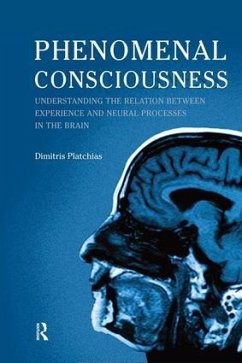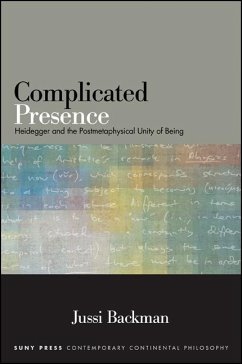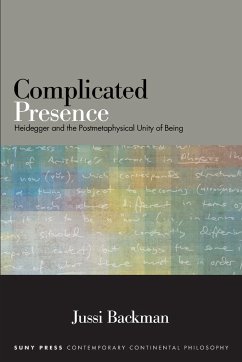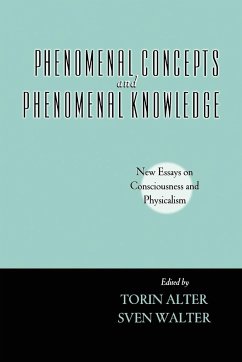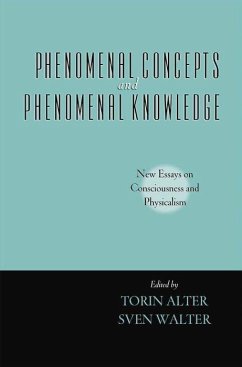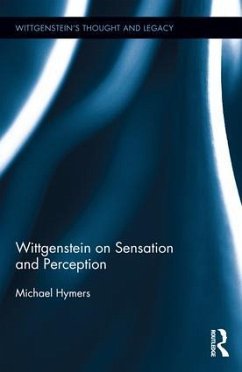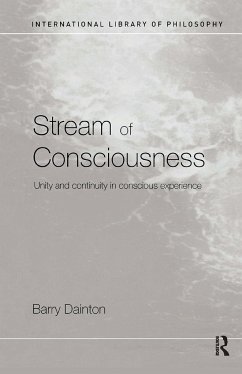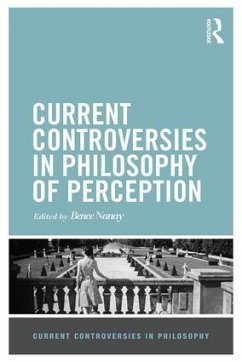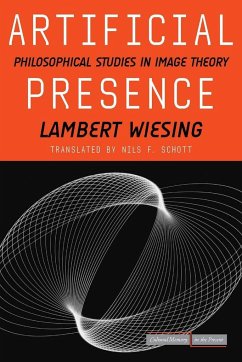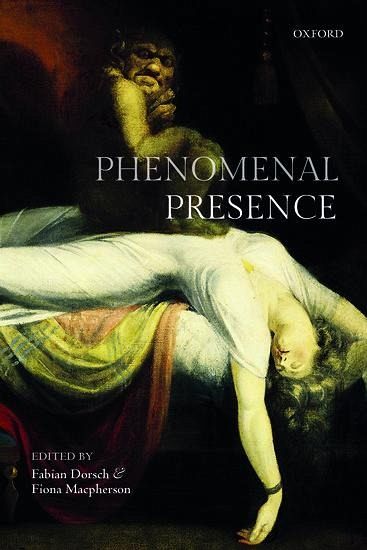
Gebundenes Buch
Phenomenal Presence
Versandkostenfrei!
Versandfertig in über 4 Wochen

PAYBACK Punkte
51 °P sammeln!




What kinds of features of the world figure consciously in our perceptual experience? Colours and shapes are uncontroversial; but what about volumes, natural kinds, reasons for belief, existences, relations? Eleven new essays investigate different kinds of phenomenal presence.
Fabian Dorsch was Research Professor in Philosophy at the University of Fribourg, Switzerland, and the Director of the EXRE Centre of Research for Mind and Normativity, where he ran two research projects: The Normative Mind and The Aesthetic Mind. The main foci of his research were interrelated issues in aesthetics, the philosophy of mind, epistemology, and the philosophy of normativity, notably meta-ethics. He published a monograph on The Unity of Imagining in 2012 (De Gruyter). He was an associate editor of the journal Dialectica and Editor-in-Chief of the journal Estetika: the Central European Journal of Aesthetics. Fiona Macpherson is Professor of Philosophy at the University of Glasgow, where she is also director of the Centre for the Study of Perceptual Experience. She is a fellow of the Royal Society of Edinburgh. Her work concerns the nature of consciousness, perception and perceptual experience, introspection, imagination and the metaphysics of mind. She has written on the nature of the senses, on cognitive penetration, and illusion and hallucination. She has published previous edited collections: Hallucination (MIT Press 2013, with Dimitris Platchais), The Senses (OUP 2011), The Admissible Contents of Experience (Wiley-Blackwell 2011, with Katherine Hawley), and Disjunctivism (OUP 2008, with Adrian Haddock).
Produktdetails
- Verlag: Oxford University Press
- Seitenzahl: 302
- Erscheinungstermin: 21. August 2018
- Englisch
- Abmessung: 236mm x 155mm x 25mm
- Gewicht: 617g
- ISBN-13: 9780199666416
- ISBN-10: 0199666415
- Artikelnr.: 50906893
Herstellerkennzeichnung
Libri GmbH
Europaallee 1
36244 Bad Hersfeld
gpsr@libri.de
Für dieses Produkt wurde noch keine Bewertung abgegeben. Wir würden uns sehr freuen, wenn du die erste Bewertung schreibst!
Eine Bewertung schreiben
Eine Bewertung schreiben
Andere Kunden interessierten sich für



